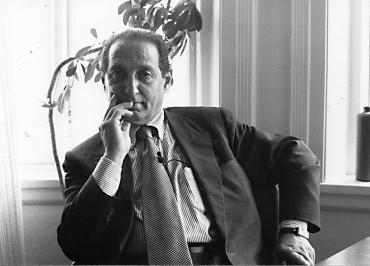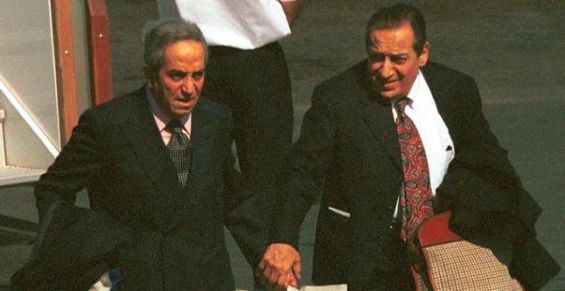They are three brothers who survived the Tazmamart secret prison that hosted army officers involved in the 1972 and 1973 failed coup d’états against King Hassan II. But unlike their inmates, held for wanting to kill the sovereign, Midhat René Bourequat, Bayazid Jacques Bourequat and Ali Auguste Bourequat did not know why they were there.
In 1973 and on a July summer night, the three brothers were arrested in Rabat, held in garde a vue and the rest was unknown for almost 19 years.
Born and brought in Morocco, the Bourequat brothers belonged to an aristocrat family. Their father was a French-Tunisian national of Turkish descendent, who left Tunisia for Morocco. Bourequat the father was known to Moroccans for being close to King Mohammed V. He has even helped set up the early Moroccan intelligence services. Meanwhile, their mother was related to King Hassan II, and had access to the Royal Palace during her life.
The arrest
Although they enjoyed a high-class status, the «three brothers were never involved in politics», their family told London-based NGO Amnesty International in December 1991.
Ali, Medhat and Bayazid have «never been tried or charged with recognizable offence», said the human rights organization but still they were «detained by order of the Cabinet Royal for an identity check» in 1973. The Interior Ministry had custody of them, reported Amnesty, recalling :
«At 6am on 8 July 1973 several officers from theBrigade Spécialewent to the house and took away Ali Auguste Bourequat. At 1pm, officers from theBrigade Spécialereturned to the house and took away Midhat René and Bayazid Jacques Bourequat».
But why were the brothers who were only businessmen arrested ? A question Midhat and Ali Bourequat answered in their Memoirs «Dix-huit ans de solitude» and «Mort vivant».
 Ali Bourequat./Ph. DR
Ali Bourequat./Ph. DR
Quoting their account Northwestern University associate professor of French and comparative literature Nasrin Qader wrote in her book «Narratives of Catastrophe : Boris Diop, Ben Jelloun, Khatibi» (2009) that the Bourequat brothers’ «only crime was to have warned the king of the possibility of a coup d’état brewing against him».
«Because of their personal relationship with the king, especially through their mother, they claim to have been used by government officials who knew of or perhaps were involved in the plot».
Qader explains that they were tricked into meeting the king personally to inform him about what they knew. According to Midhat and Ali, these officials «pretended that the safest and surest way to let the King know would be through direct connection without intermediary or an official», says the same source.
Detained for almost 19 years
After their arrest, Ali, Bayazid and Midhat were taken to a special detention center before being sent to Tazmamart in 1981.
According to an article published in 2013 by French-language magazine Telquel, the three brothers reportedly stayed in several detention centers belonging to the Gendarmerie Royale before being transferred in April 1974, to PF3, a secret prison in Rabat.
Ali, Midhat and Bayazid managed to escape prison on July the 13th, 1975 alongside the mutineers of the 1971 failed coup against Hassan II but were immediately rearrested, as reported by Amnesty International.

In 1981, they were transferred to the Tazmamart prison in south-eastern Morocco, which hosted army officers, Sahrawi nationalists and political offenders.
«We have received information that [the Bourequat brothers] were moved from an unknown place of detention to Tazmamart sometime between 1977 and 1989», wrote the NGO in a different account.
The brothers spent almost 19 years in Tazmamart with other 58 other inmates. According to Nasrin Qader, the three brothers «began their terms in Block B, but were transferred to Block A toward the end of their ordeal».
«Of the twenty-eight survivors, twenty-three were from Block A and only five from Block B».
Although Ali, Midhat and Bayazed survuved Tazmamart, they couldn’t heal from the scars it left in their souls and bodies.
«For those who survived Tazmamart, reconstructing an identity after having lived through the nightmares of underdescribed human abuse, is virtually impossible», wrote Larbi Touaf in his book «Representing Minorities: Studies in Literature and Criticism» (Campridge Scholars Publishing, 2006).
«Ali Bourequat delineates the horror faced by 58 men, for eighteen years were imprisoned in tiny, cramped cells with hardly any light, air or palatable food».
The years they spent in Tazmamart had been awful that it drove the three brothers to leave Morocco once released. They moved to Paris, as they were French citizens, and lived there. Their account was related to other detainees who shared the same experience, dwelling in the Tazmamart prison for years during the reign of Hassan II.





 chargement...
chargement...













